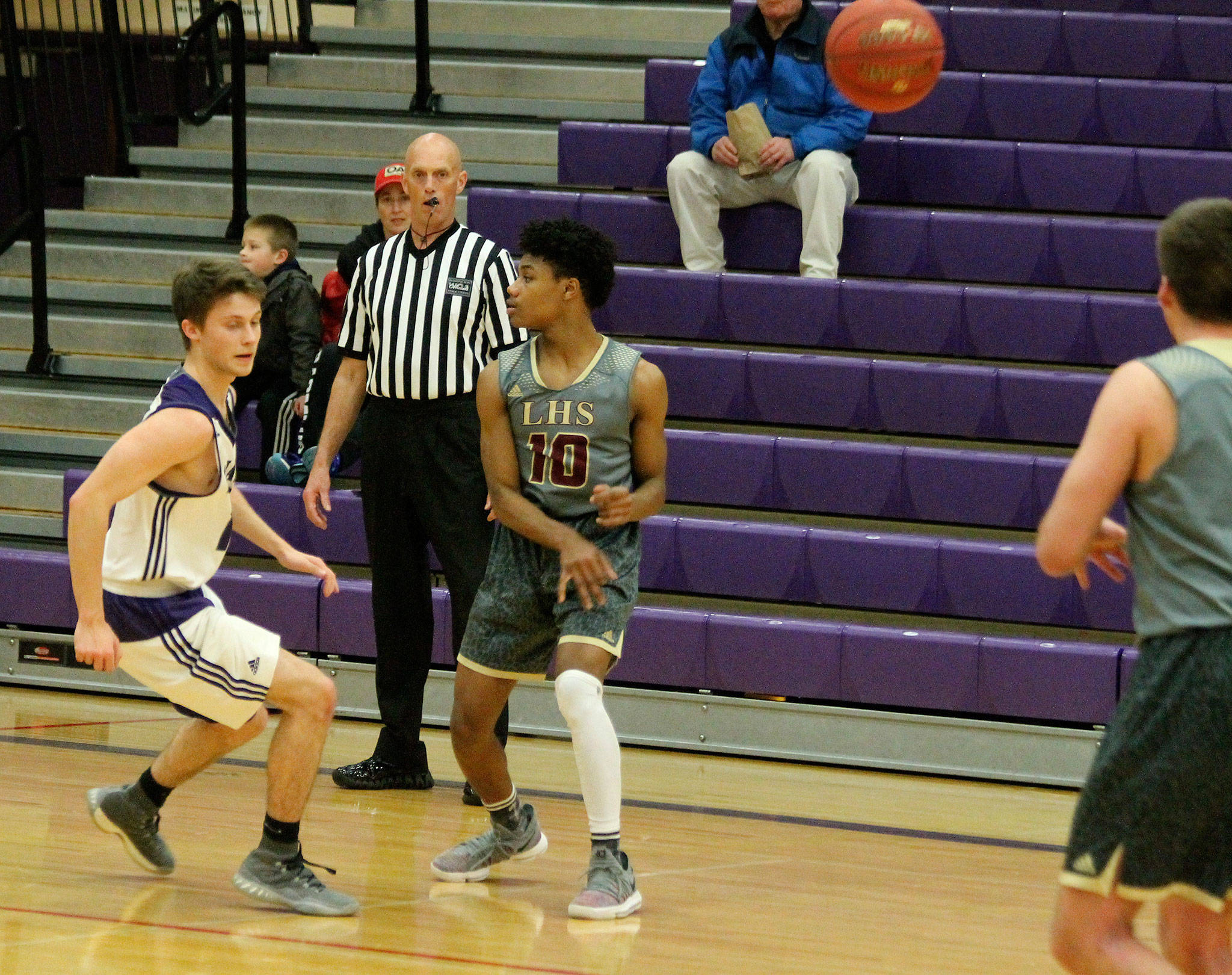Sports fans like to say there are two kinds of game officials: those who are bad and those who are worse.
If that’s the case, Oak Harbor’s Hap Fakkema would fall into the “bad” category because he certainly is not the worst.
In fact, Fakkema is considered one of the top basketball officials in the state of Washington.
Fakkema began officiating the season after he graduated from Oak Harbor High School in 1978. He was encouraged to give it a try by his sister Flo Dalhstetd, who was a girls basketball official at the time.
Highly ranked
Within five years, Fakkema was ranked among the top five officials in the Whatcom, Skagit and Island county area. The past 26 years he has been ranked first or second.
Because of his talent, he has been selected to officiate 17 state tournaments, including working 11 championship games.
His first state tournament came in 1982, only three years after starting his officiating career. Fakkema’s first state title-game assignment was in 1989.
In the beginning, Fakkema only officiated girls games. In 1990-91, he added boys to his plate. In addition to doing boys and girls high school games that season, he worked girls junior college games.
“That lasted one season,” he said. “I was burnt out from always being gone.”
In 2000, he officiated high school boys games and Great Northwest Athletic Conference girls games. The GNAC includes Western and Central Washington universities, NCAA Division II schools.
The travel to the college games made officiating “like a second job,” Fakkema said, and he returned to only high school boys after two seasons.
This year he has picked up boys community college games.
Why officiate?
So why do a job where you are the target of abuse?
“I officiate for the love of the game and the relationships I built over the years,” he said. “I have more relationships through refereeing then anywhere.
“When I walk into the Tacoma Dome (for the state tournament), I will see coaches from the Seattle area like Rainier Beach coach Mike Bethea, and he will walk right over to me and give me a big hug and we will sit and talk. No matter where I go, when coaches see me, they always stop and talk.”
Those relationships also include players, and he enjoys seeing them develop through their high school years and beyond.
Blaine’s Luke Ridnour and Mount Vernon’s Mark Hendrickson both went on to play in the NBA after successful college careers. Mount Vernon’s Grant Leep, after starring at the University of Washington, is now the head coach of Seattle Pacific University.
Fakkema tries to be open to the team captains during games, and said those players have “opened up to me as well — even off the floor.”
Relationships with players, coaches and other officials, he added, don’t only happen during the regular basketball season. They continue in offseason during camps and referee conferences.
Passion for game
Fakkema’s love for the game is evident to Dave Dickson, former Oak Harbor and current Squalicum High School coach.
“When we would talk about high school basketball, his passion for the game and passion for his craft is obvious,” Dickson said.
“When the officiating crew comes by to shake hands before the game, Hap always says the same thing, ‘We’ll work hard for you,’” Dickson added. “That hard work and consistency has been his trademark.
“I have always appreciated his work ethic and his willingness to let me advocate for my team. Having teams play at the highest levels and watching years of high school basketball games, I can say that Hap Fakkema is, quite simply, one of the best basketball officials in our state.”
Oak Harbor coach John Weston said, “Hap is definitely one of the best officials out there. He is a professional and truly respected by the coaching community. I enjoy having him work our games because you are able to talk to him, and he does a great job listening to your concerns and giving honest feedback. He doesn’t take things personally and never shows an ego.”
Lynden coach Brian Roper echoed Dickson’s and Weston’s remarks, noting Fakkema always works hard and displays no ego.
“Hap understands that the game is about the kids,” Roper added. “He is very decisive and incredibly fit — probably faster than many of the point guards in our league.
“He is such a nice guy that the times when I’ve gotten after him about a call, I later feel bad. Often when I watch the film, I’m the one who was wrong.”
Not perfect
Fakkema admits officials aren’t perfect. Fans generally think referees are right only half the time, depending on which team they are rooting for.
“If we get 80 percent of our calls right, we can walk off the floor as a crew and say we did our best,” he said.
Officiating crews, he said, are successful when they trust each other, communicate and are like-minded and call the first foul.
“When you can do this 90 percent of the time, you won’t be noticed and won’t be the one that decides the outcome,” he said.
Weston said, “Great officials don’t take over games, and you hardly notice them; Hap is one of those guys.”
Fakkema said he wants fans to remember that officials “have day jobs like them” and that officials give up vacation time to travel to games.
He leaves work early, such as 2:30 p.m. to travel to Lynden, and often doesn’t get home until 10:45 p.m. This happens three or four times a week.
Fans, players and coaches seem to have an inbred dislike of officials. Officials, however, aren’t all bad or worse.
“It has always been a welcome site to see Hap rolling in to work my game, especially big games,” Dickson said.
Like Dickson, most agree that Fakkema is above “bad.” Possibly fans can compromise and boost talented officials like Fakkema to “mediocre.”



